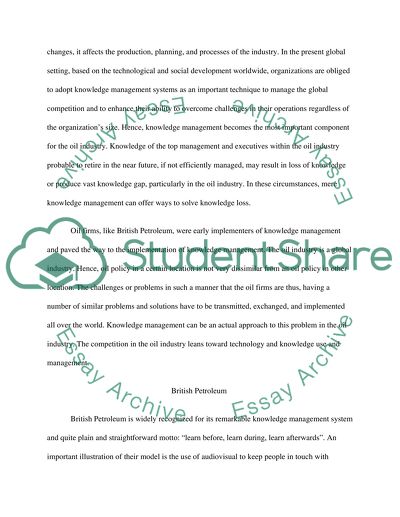Cite this document
(“LEADING KNOWLEDGE MANAGEMENT FOR ORGANISATIONAL LEARNING Essay - 1”, n.d.)
LEADING KNOWLEDGE MANAGEMENT FOR ORGANISATIONAL LEARNING Essay - 1. Retrieved from https://studentshare.org/education/1648125-leading-knowledge-management-for-organisational-learning
LEADING KNOWLEDGE MANAGEMENT FOR ORGANISATIONAL LEARNING Essay - 1. Retrieved from https://studentshare.org/education/1648125-leading-knowledge-management-for-organisational-learning
(LEADING KNOWLEDGE MANAGEMENT FOR ORGANISATIONAL LEARNING Essay - 1)
LEADING KNOWLEDGE MANAGEMENT FOR ORGANISATIONAL LEARNING Essay - 1. https://studentshare.org/education/1648125-leading-knowledge-management-for-organisational-learning.
LEADING KNOWLEDGE MANAGEMENT FOR ORGANISATIONAL LEARNING Essay - 1. https://studentshare.org/education/1648125-leading-knowledge-management-for-organisational-learning.
“LEADING KNOWLEDGE MANAGEMENT FOR ORGANISATIONAL LEARNING Essay - 1”, n.d. https://studentshare.org/education/1648125-leading-knowledge-management-for-organisational-learning.


